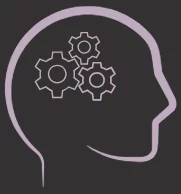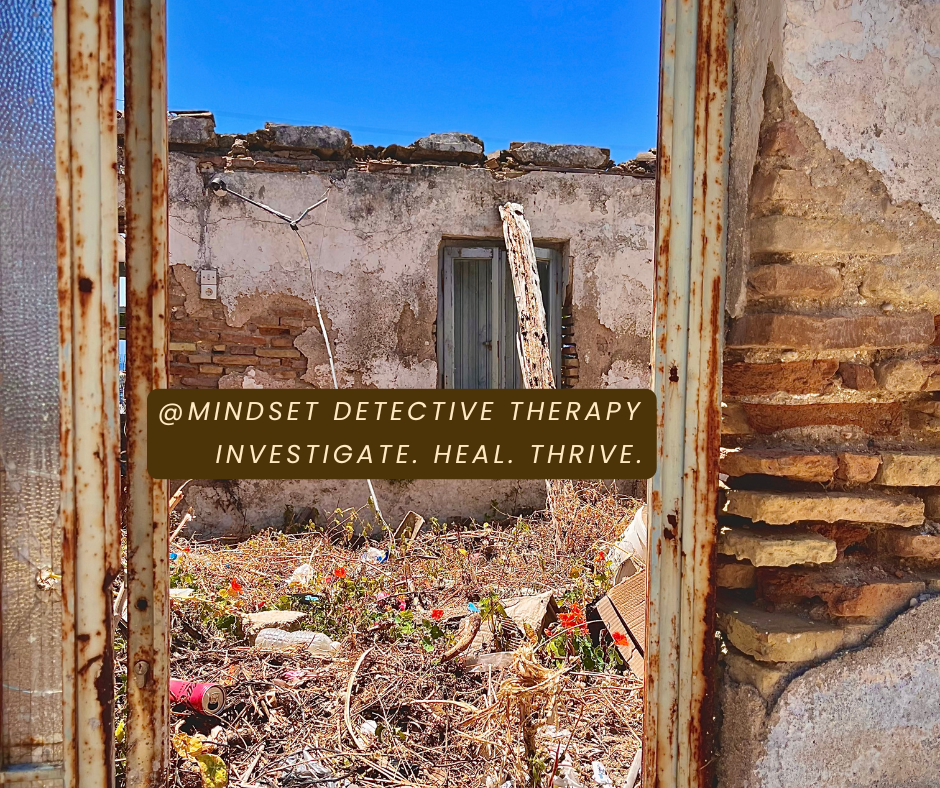Sandra was stunning — the kind of woman who could stop a room with her presence. You’d think she had it all together. But what I saw on my screen was something entirely different.
She looked uneasy. Her eyes darted, her hands twisted the fabric of her shirt, her lips trembled with words that wouldn’t land. Beauty, yes. But behind it — chaos.
As our session began, I watched her shift again and again in her chair.
"Tell me, Sandra, what brings you here into my virtual room today?"
She blinked, exhaled, and then… unravelled.
What followed wasn’t an answer. It was a torrent.
She talked about her relationship — how it started, how it ended, then how it restarted again. The good times, the betrayal, the emotional highs, the silent treatment. One moment she was nostalgic, the next she was angry, then guilty, then confused.
It wasn’t just a story — it was a storm. She wasn’t processing. She was drowning in emotional clutter.
Emotional clutter is like your brain’s junk drawer. Stuffed with unresolved feelings, unspoken thoughts, outdated fears, half-processed heartbreak. And like a real junk drawer, when it overflows, you can’t find what you need — like self-trust, clarity, or peace.
It may trigger anxiety, indecision, and emotional fatigue. It pulls your energy in a thousand directions.
With Sandra, I used a mix of Cognitive Behavioural Therapy (CBT) and hypnotherapy. We didn’t dive headfirst into the relationship story. Instead, we zoomed out.
I asked her to close her eyes. To imagine her thoughts as papers scattered across a desk. I guided her to pick one. Just one. What came up surprised her.
That paper? A memory of not being chosen. Not by this ex — but by someone very close to her years ago.
The insight was lightning in a bottle. She cried, yes. But then she breathed. Deeply. For the first time in our session, her shoulders softened. Her voice slowed.
She had found one of the roots under the weeds.
Sandra didn’t just gain clarity about the breakup. She saw how her emotional chaos wasn’t just about him — it was about every moment she hadn’t dealt with before him.
She learned how to sit with discomfort, to question her patterns, to hold space for her own truth without judgment.
Here’s a technique I often give clients:
The 3-minute focus:
- Set a timer for 3 minutes.
- Ask yourself: What emotion am I feeling most strongly right now?
- Write down ONLY that. No backstory. No fixing.
It’s like taking a snapshot of your inner world. Do it daily, and you'll start seeing patterns.
Unfinished emotional stories — especially from relationships — act like tabs open in a browser. They drain your energy. They steal your attention. And until you consciously close them, they stay open, demanding your mental bandwidth.
That’s why Sandra couldn’t focus — her tabs were still playing old emotional YouTube videos on loop.
When you’re cluttered emotionally, confidence becomes collateral damage. You can’t hear your own wisdom over the noise. You second-guess yourself. You replay old decisions.
But once you start clearing space, your voice gets louder. And you start to trust it again.
Sandra didn’t walk away from therapy “fixed.” That’s not how healing works. But she left with tools — ways to pause, reflect, and regulate.
She learned to catch herself mid-rumination. To ask better questions. To choose rest over reactivity.
A month later, she said, “I don’t feel like I’m stuck in that movie anymore. I still think about him sometimes, but now it feels like watching an old film — not living in it.”
She even laughed about her first session: “I couldn’t even sit still! Now I can sit with myself. That’s huge.”
Every woman I work with has her own version of Sandra’s story. Maybe the details differ, but the pain — the emotional clutter — feels familiar.
And just like Sandra, you can learn to clear space. You can find your focus. You can reclaim your power.
You deserve a brain that feels like a sanctuary, not a battlefield.
If there’s one thing Sandra’s story teaches us, it’s that healing isn’t linear. It’s messy. It’s confusing. It often starts with not knowing where to start.
But that’s okay. You don’t have to do it perfectly — you just have to do it honestly.
You’ve already taken the first step by being curious. The next? Maybe it’s writing down that one emotion. Or booking your first session. Or simply breathing.
You’ve got this.
FAQs
What is emotional clutter?
Emotional clutter is the build-up of unresolved feelings, thoughts, and experiences that cloud your mental clarity and emotional balance.
How can hypnotherapy help after a breakup?
Hypnotherapy accesses the subconscious mind to identify and heal deep-rooted emotional patterns, offering calm and clarity after a relationship ends.
What if I can’t stop thinking about my ex?
This is often a sign of emotional residue. A therapist can help process those thoughts and detach from them gently and meaningfully.
Is it normal to feel lost after ending a relationship?
Completely. Relationships shape our identity and ending one can feel like losing part of yourself. It takes time to rediscover who you are.
How long does it take to rebuild confidence?
Everyone’s journey is different, but with consistent self-work, most women begin to see shifts in clarity and confidence within weeks. For some, it may, however, take months or even years in more complex cases.
By Olesia Chayko
Cognitive Behavioural Hypnotherapist & Post-Relationship Healing Specialist

